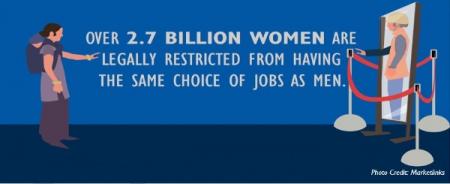1.3. WEEGE at USAID
Achieving WEEGE is a complex challenge. It requires changes in individuals, communities, institutions, markets, social norms and the wider political and legal environment (Box 3 lists some effective practices in the private sector). These changes will create an environment where women’s choices, power and agency can flourish.
Box 3: USAID's Private-Sector Engagement Strategy and WEEGE
|
USAID, through its diverse multi-sector and global portfolio, is in a unique position to address the barriers to WEEGE. USAID’s Gender Equality and Female Empowerment Policy seeks to “improve the lives of citizens around the world by advancing equality between females and males, and empowering women and girls to fully participate in and benefit from the development of their societies.” The policy directs USAID investments toward the following objectives:
- Reduce gender disparities in access to, control over, and benefit from resources, wealth, opportunities and services - economic, social, political and cultural.
- Reduce gender-based violence (GBV) and mitigate its harmful effects on individuals and communities.
- Increase capability of women and girls to realize their rights, determine their life outcomes, and influence decision-making within households, communities and societies.
This policy provides the impetus for improving and amplifying work on WEEGE, both through standalone women’s economic empowerment activities and by including WEEGE in multi-sectoral programs focused on areas such as economic growth, agriculture and food security, education, health and peacebuilding. USAID recognizes WEEGE as an essential component of mainstreaming gender into Agency operations, as a basic responsibility of every USAID staff member and partner.
Image


